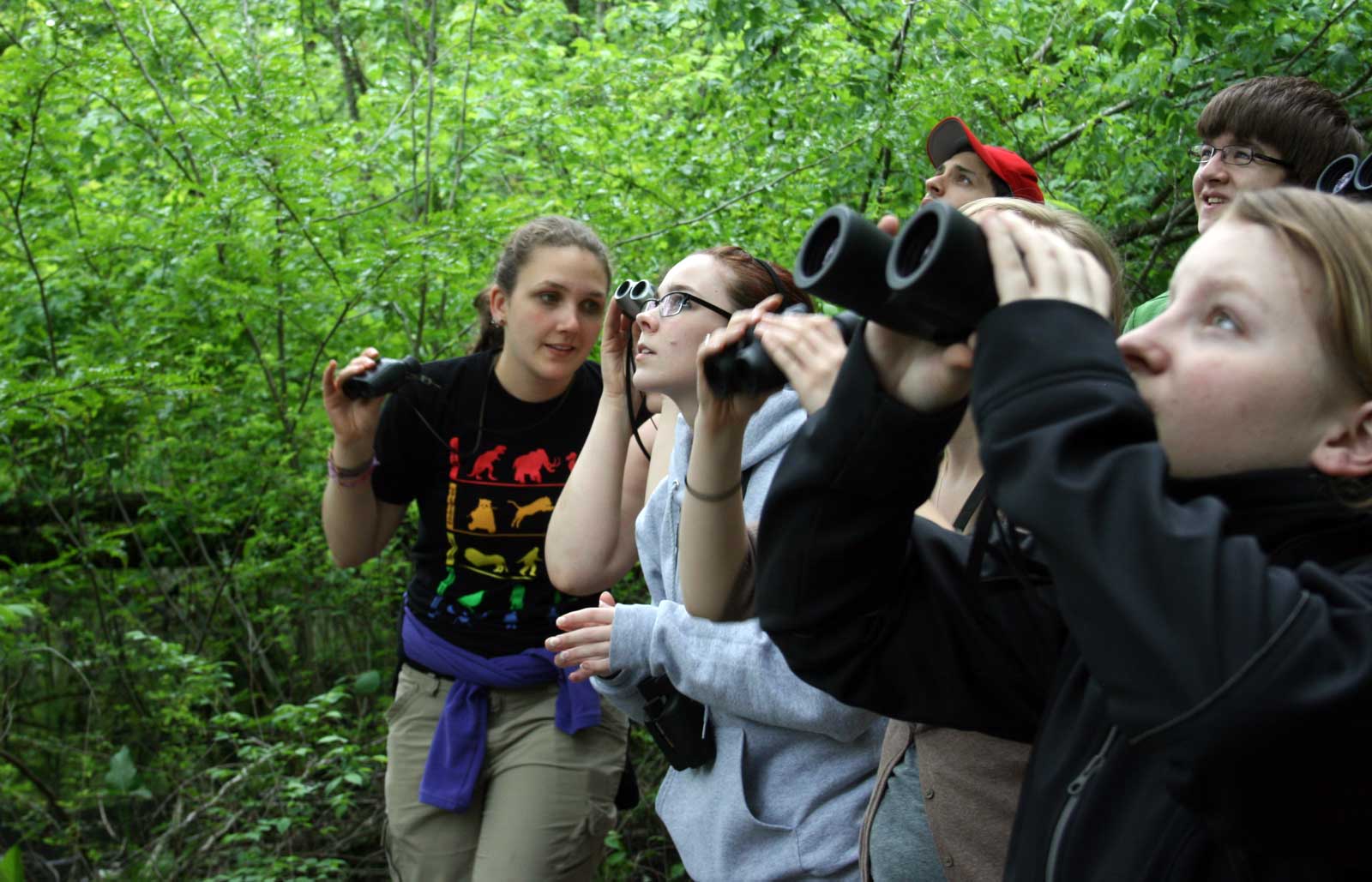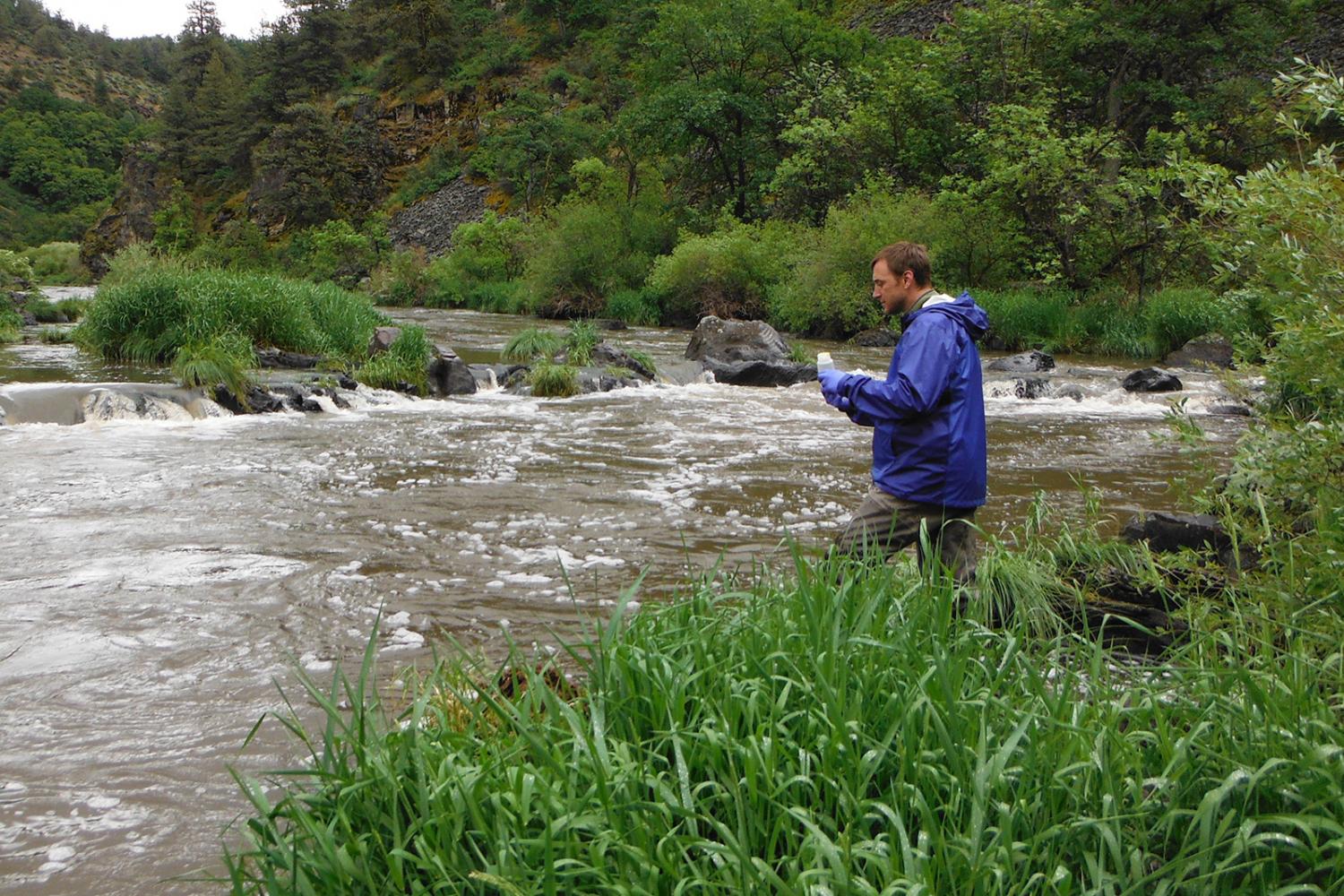Natural Resources & Environmental Sciences
NRES is a unique, interdisciplinary program that brings biological, physical, and social scientists together to teach and discover solutions that improve the health and sustainability of urban and natural ecosystems. This major provides a science-based, application-oriented education that includes multiple field courses emphasizing hands-on experience and skills outside of the classroom. The NRES major prepares students for careers in management and conservation of natural resources; the study of environmental sciences, teaching, or research; business or government agencies providing services related to environmental and natural resource management; and graduate studies.
NRES majors choose one of four concentrations.
Fish, Wildlife and Conservation Biology emphasizes the ecology, conservation, and sustainable management of fish and wildlife species and communities. It is designed for students interested in understanding interactions among humans, wild animals, and their habitats. The concentration includes coursework in conservation of threatened and endangered species, management of harvested species, aquatic ecosystem conservation, animal behavior, vertebrate natural history, identification of animals and plants, and advanced ecology.
Environmental Science and Management emphasizes the biological, chemical, and physical features of the environment. It is designed for students interested in the management of soil and water resources and in understanding how to protect and improve environmental quality. The concentration includes coursework in environmental chemistry, environmental microbiology, ecohydrology, and environmental quality, as well as courses focused more specifically on soil and water sciences.
The Human Dimensions of the Environment emphasizes the social scientific interpretations of human-environment interactions at multiple levels, as well as on applied policy and management implications. This concentration requires advanced coursework in behavior change science, natural resource economics, environmental and conservation psychology, communications, social impact assessment, environmental policy, and environmental law.
Ecosystem Stewardship and Restoration Ecology emphasizes the ecology, structure, and function of ecosystems, with a particular focus on plant communities and their interactions with the living and non-living parts of ecosystems. It is designed for students interested in the fundamental properties and practices underlying the restoration and management of soil, watershed, wetland, forest, and grassland ecosystems. The concentration includes coursework in the areas of restoration, landscape, and plant ecology, as well as courses focused on specific ecosystems (e.g. streams wetlands, agroecosystems), invasive species, community ecology, and ecosystem science.
- NRES 102—Introduction to NRES or NRES 100 - Fundamentals of Environmental Sciences
- NRES 287—Environment and Society
Students should consult with an academic advisor regarding course selection prior to the advanced registration period.
NRES graduates work in environmental science and natural resource management positions in government, corporations, consulting firms, and non-governmental organizations.
- Collect and manage research and monitoring data
- Concepts and tools of Geographic Information Systems
- Identify and assess the quality and relevance of scholarly information related to environmental issues
- Integrate bio-physical and social sciences to solve environmental problems using a systems approach
- Oral and written communication for peers, managers, stakeholders, and public
- Recognize and differentiate among perceptual, social, political, and economic theories relevant to human-environment interactions
- Sensitivity to diverse peoples, cultures, values and their roles in environmental management
- Understand the ecological principles underpinning management of populations, communities, and ecosystems
- Understanding of scientific methods and ways of knowing
- Working in groups, both within and across disciplines, and ability to discuss environmental issues from different perspectives
- Aquatic Ecologist
- Conservation Biologist
- Conservation Officer or Manager
- Ecologist
- Environmental Attorney
- Environmental Consultant
- Environmental Educator
- Environmental Protection Specialist
- Forest Economist
- Land Use Planner
- Lobbyist
- Managers of Parks, Forests and Rangeland
- Naturalist
- Nature Center Director
- Plant Nutrient Consultant
- Plant Physiologist
- Policy Analyst
- Professor
- Researcher
- Restoration Ecologist
- Soil Conservationist or Scientist
- Watershed Manager
- Fisheries Conservationist
- Forest Ranger
- Forester
- GIS/GPS Technician
- Hydrologist
- Litigation Support Analyst
- Natural Resource Technician
- Park Ranger
- Project Manager
- Water/Wastewater Plant Operator
- Wildlife Manager
- Zoo Researcher
- Zoo Studbook Analyst
Some careers may require education beyond an undergraduate degree.
- Participating in undergraduate research
- Applying for a study abroad experience
- Utilizing resources of The Career Center
- Joining a Registered Student Organization (RSO) related to this major
There are several professional organizations dedicated to Natural Resources and Environmental Sciences. Their websites might be able to provide a glimpse in the world of NRES. These organizations include The Ecological Society of America, National Association of Environmental Professionals, Society for Ecological Restoration, and The Wildlife Society.


